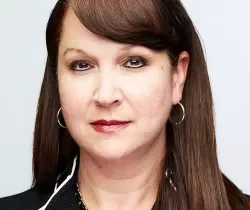Rachel Wimberly

Rachel Wimberly is Executive Vice President of Business Development at Tarsus Group, US. Follow her on Twitter @TSNN_Rachel.

As anyone who is familiar with the event industry knows, the recession has been tough on our business in more ways than one.
And, even with more people attending events recently, there still are pressures on the industry, especially in light of overspending by government agencies that has resulted in calls for travel to be severely restricted, the U.S. economy and unemployment rate is not exactly on sure footing and the global economy also has its problems.
So, it was with complete and utter shock that I started seeing a series of Tweets going out by a virtual event company called ON24 with messages such as:
94% of Americans believe ‘bad behaviors’ occur when travelling to attend conventions and trade shows http://bit.ly/PCDCrt #GoVirtual
Business travel seen as bastion for unhealthy behavior @EBNmagazine http://bit.ly/PACtil #GoVirtual
Business Travelers Gone Wild by @rUv for @Forbes http://onforb.es/SsXC13 #GoVirtual
The link in all these Tweets leads to an article that was picked up in a slew of general and business publications that was about a survey of 2,000 people conducted by Harris Interactive on behalf of ON24 called “Your Time, Your Life, Go Virtual”.
The survey was broken into three sections to examine attitudes on work/life balance and its impact on people’s lives.
What the news outlets caught onto and spread far and wide was a statistic that 94% of the people said “bad behaviors” occur among people travelling away from home to attend business trade shows and conventions, with 71% believing people drink too much alcohol while away.
Additionally, cheating on a spouse (66%), spending too much money (54%), eating fatty foods (53%), not sticking to exercise routine (43%), going to bed late (42%) and taking illicit drugs (31%) also were answered on the survey.
There were a ton more stats all pointing to for the most part how the life/work balance is way off.
The headline in Forbes article was “Business Travelers Gone Wild: Does Business Travel Lead to Divorce and Alcoholism?”, a Huffington Post headline was “Cheating At Work? Survey Suggests 66 Percent Of Americans Fear Infidelity At Trade Shows”.
ON24 Chief Marketing Officer Denise Persson was quoted in a press release saying, “These results illustrate that Americans believe their work-life balance is out of whack and that fuels their growing dislike for business travel, their resentment and their desire for control of their own lives and how they spend their time. At ON24 we’re committed to providing virtual solutions that help travelers make the most out of their lives. Because it’s your time, your life. Go virtual!”
ON24 must have been in heaven with all of this press coverage. They hit the big time and their message was simply forget face-to-face events, lots of bad stuff happens there, #govirtual.
ON24 seemingly would like to work with event organizers on virtual events, after all, most people agree that in conjunction with a live event having virtual components before, during and after is a win-win for everyone.
But, I fail to see the logic of completely trying to paint a negative picture of business travel to face-to-face events in order to boost the idea that people are safer staying in their offices and going virtual.
Do I think ON24’s marketing blitz to urge people to consider virtual events was successful? In one sense, of course; they got the coverage they wanted.
But, in another, much bigger sense, I think throwing the entire event industry straight under a BIG moving bus wasn’t the right way to do it.

Add new comment